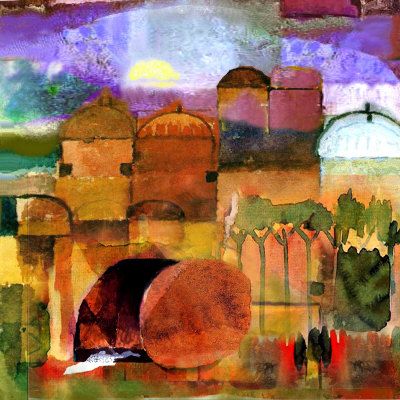
r
It was dark outside, early dawn in fact, when they got up, that group of women which included Mary Magdalene, Joanna, Mary the mother of James, and other women, women Jesus healed, and women from whom had exorcised demons. Women Jesus loved and treated with respect. In turn these women loved Jesus and stayed faithful to him to the end. As Jesus traveled to Calvary, carrying his cross, the women accompanied him. They stood watch as Jesus suffered and died, never turning away, even though others did.
They didn’t speak, as they didn’t speak in those early hours, when the pall of darkness is still in the air, evaporating very quietly, slowly, as signs of life awakens, through the birds, a breeze, perhaps a mist. It was at early dawn on that third day, the first opportunity they had, that the women prepared the spices to take to Jesus’ tomb and anoint his dead body.
At dawn they found the stone rolled away from the tomb. At dawn they went in the burial cave and didn’t find the body. They were perplexed, the same word used for Mary, the Mother of Jesus, when she was perplexed and didn’t understand the Angel Gabriel’s greeting, bringing her news of the conception of a new, Holy life. So the women are perplexed as these signs of new, resurrected life that they too don’t yet understand.
At dawn the women encounter two men in dazzling clothes, we presume them angels like they are recorded in the Gospel of John. These two men/angels are the dawn speakers, for they proclaim “Why do you seek the living among the dead? He is not here, but has risen.” They remind the women of Jesus’ prophetic words in Galilee that he would suffer and die, but rise again. At dawn, the women do indeed remember, and run to tell the rest. The others, roused from their sleep so early, believe this an idle tale, but Peter ran to the tomb and was amazed to see the linen cloths but no body there. All at dawn.
Dawn is a special time of day. Not night anymore, not quite day, it is an in between time, an in-between place. Darkness is giving way to light, but the mix of the two is there. The world for the most part is still quiet, only a few are awake. Some of us find getting up extra early at dawn to be rewarding. It is a perfect time to get a head start, to meditate, exercise, pray, attend to a special project without the disruptions of daytime busyness, while the quiet of the night lingers.
Jesus chose to rise at early dawn. Not in the dark of night. Not in the light of day. But at rosy-fingered dawn, “gold throned dawn, the “bright throned dawn,” as the Odyssey puts it.
In the scriptures dawn was a time of spiritual significance, commitment and renewal. The prophet Zephaniah affirms that “morning by morning God dispenses his justice, and every new day he does not fail” (3:5). The new dawn requires that every day people are to be judged fairly, and God’s called leaders must deliver those who had been robbed or oppressed in any faction.If you recall, Jacob in the book of Genesis, on his first night he was exiled from home, has a vivid dream of heaven and he rose early and worshiped the Lord before he continued his journey (Gen 28:18-19). Job made it a regular practice to worship God early in the morning (Job 1:5). Such also probably was Joshua’s custom (Josh. 3:1; 6:12; 7:14, 16; 8:10). Indeed, when crucial decisions were to be made or important activities needed to be accomplished, it is often reported that godly people in times of trouble rose early to pray and be with God. When Abraham was tested to sacrifice Isaac. When God called Moses called to ratify the covenant. When God called Gideon to be a judge over Israel. When Samuel’s parents, Elkaniah and Hannah prayed for a longed for child. The prophet Jeremiah and King Hezekiah of Judah rose early to address their problems and worries with God (Gen. 22:3; Exod. 24:4; Judges 6:35; 2 Chron. 29:20, Jeremiah 7:13, 1 Sam 1:19). The psalms repeatedly talk about dawn as a time of prayer and encounter with God, as Psalm 5 reminds us: “In the morning O Lord, you hear my voice, in the morning I lay my requests before you and wait in expectation.” (Pss. 5:3; 88:13, Pss. 59:16; 90:2, Ps. 49, Ps. 143:8 Ps. 92:1-2). It is not surprising then that the gospels remind us that Jesus got up in the morning, while it was still dark, and went to a solitary place to pray (Mark 1:35).
So this faithful band of sisters went to Jesus’ grave out of love and loyalty but in a tradition of their ancestors. To somehow find strength. To find God’s justice. To find the presence of the Holy One. To find a way to face the troubles of the day with God’s help. In the midst of darkness, to find hope.
Dawn symbolizes not only darkness giving way to light, but the old making way for the new, fresh beginnings. For believers, dawn symbolized an eager desire to meet the Lord, serve God, and live in accordance to God’s will. It is not surprising then that even the word, Easter, is derived from the proto-Indo-European root, for the word Dawn. Today we celebration dawn. The divine dawning of God’s light in the resurrection of Christ Jesus.
We need the dawn in our lives. Although called to be an Easter people, many of us live in darkness or a night of some sort or another. Some of us live with a sense of alienation from God or from loved ones. Perhaps there is a darkness of an illness, financial stress, conflict of some sort. For some of us, This Easter Sunday has shadows of Good Friday that cling to our hearts. We wonder, where is the dawn? Where is the dawn in a world filled with conflict, suffering and war? Yet Easter is strong enough to handle all the pain, all the doubt, all the hurt in our hearts. As dawn surely follows the night, Easter rises from the ashes of pain and sorrow.
Easter is our reminder that Jesus rises in our darkness, shows us life in the scarred places and leads us to new possibilities. Life, new life, new possibilities. The old life is gone…yes…Easter does not deny that. Easter does not deny death or the tomb. However Easter proclaims that a new life, unknown is on the horizon and beckons us forward…where Jesus is – in resurrection glory.
Easter Dawn reminds us of this prayer:
God make me brave for life: oh braver than this.
Let me straighten after pain, as a tree straightens after the rain
Shining and lovely again.
God make me brave for life; much braver than this.
As the blown grass lifts, let me rise from sorrow with quiet eyes
Knowing Thy way is wise.
God make me brave, life brings such blinding things.
Help me to keep my sight;
Help me to see aright
That out of dark come light.
Like those women who came to the tomb in the early dawn, let us not be afraid. It is Easter. We are indeed braver than this. We will straighten. We will rise. We will see aright. Because we see the dawn. At some place on this good earth, it is dawn. It is always dawning.
If we follow the example of the faithful and sages we will see: dawn always approaches. A stone rolled away. An empty tomb. Linens by themselves. The angels’ message: He is risen.
It is Easter, and no matter where our lives are, dawn will find us. Remember Jesus’ words. His promise. Because Jesus is risen. We will rise too.
He is risen indeed. And so will we.
Amen.
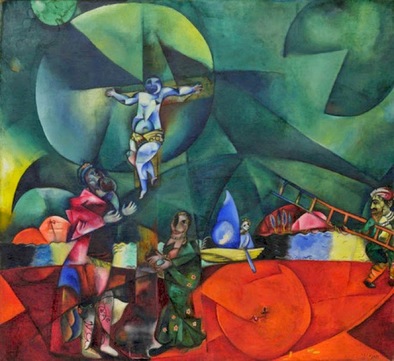
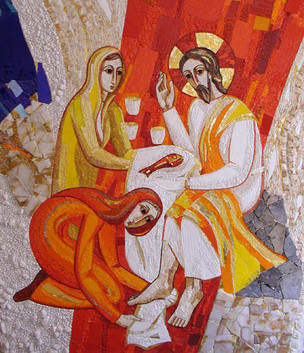
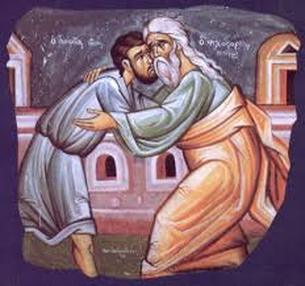
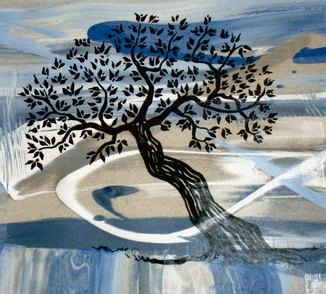
 RSS Feed
RSS Feed